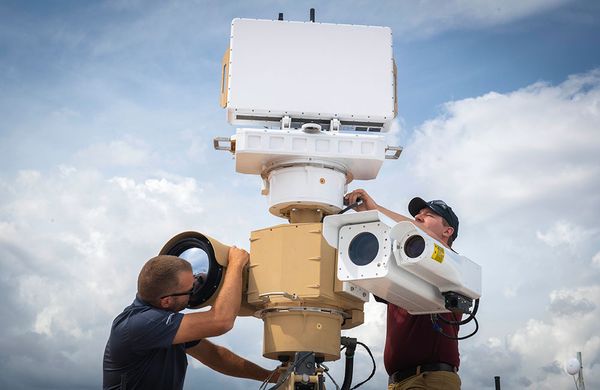A United Nations contracted helicopter crash landed in Somalia after an apparent accident, after which it was captured by the armed group al-Shabab. The incident, involving a Mi-8MTV-1, has raised concerns about the group's capabilities and the safety of humanitarian operations in the region.
The Crash and its Aftermath
The helicopter was on a medical evacuation mission from Beledweyne City to Wisil town when it reportedly experienced technical difficulties and crash-landed near the village of Hindhere. One person was killed in the crash while several others, including crew members and possibly military personnel, were taken hostage by al-Shabab fighters.
The crash site lies within al-Shabab-controlled territory, bordering the Galguduud region where the Somali government is currently engaged in an offensive against the group. While the cause of the crash is still under investigation, some reports suggest the helicopter may have been hit by an object, possibly fired by al-Shabab militants.

Concerns and Repercussions
The capture of the UN helicopter has sent shockwaves through the international community, raising concerns about the group's ability to safeguard its personnel and assets.
The Terrorist group's ability to target and down a UN Helicopter shows their growing boldness and capabilities. This incident could potentially escalate the ongoing conflict in Somalia and hinder peacebuilding efforts. In addition, humanitarian operations in Somalia could be in danger as such incidents could hinder the UN in delivering essential supplies to people in need.

International Response
The United Nations and the Somali government have condemned the capture of the helicopter and called for the immediate release of the hostages. The UN Secretary-General António Guterres has urged al-Shabab to "respect the inviolability of UN personnel and assets."
International partners, including the United States, have also expressed their concern and pledged their support to the Somali government and the UN in securing the release of the hostages.
The road ahead remains rocky with negotiations for the release of the hostages underway. It is currently unclear whether al-Shabab will comply with international demands. This type of incident raises calls for renewed efforts to combat al-Shabab and address the root causes of conflict and instability in Somalia.

Addressing Underlying Issues
The capture of the UN helicopter is a reminder of the difficult security challenges facing Somalia. While the immediate focus is on securing the release of the hostages and ensuring the safety of humanitarian workers, it is crucial to address the underlying factors that fuel the conflict in the region.
These factors include poverty, drought, lack of access to education and healthcare, and the lingering legacy of civil war. Addressing these issues will require a coordinated and sustained effort from the Somali government and the international community. Only through long-term investments in peacebuilding, development, and good governance can Somalia hope to achieve lasting stability and security.
The capture of the UN helicopter serves as a wake-up call, urging the international community to redouble its efforts to support the Somali people in their quest for a peaceful and prosperous future.
Sixth Global Express Joins FAI Aviation Group Fleet » Private Jet Carrying Eight Crashes During Takeoff in Bangor, Maine » 1,000+ Standby Passengers Are Already Listed for Alaska's Inaugural Rome Flight »
Comments (0)
Add Your Comment
SHARE
TAGS
NEWS United Nations UN Terrorism Crash Landing Mi-8 Soviet UnionSomaliaRECENTLY PUBLISHED
 FAA Finalises ‘Exceedingly Rare’ Rules After Deadly DCA Midair
In the shadow of the first anniversary of the deadliest midair collision in recent American history, the Federal Aviation Administration (FAA) has moved to permanently rewrite the rules of the sky over the nation’s capital.
STORIES
READ MORE »
FAA Finalises ‘Exceedingly Rare’ Rules After Deadly DCA Midair
In the shadow of the first anniversary of the deadliest midair collision in recent American history, the Federal Aviation Administration (FAA) has moved to permanently rewrite the rules of the sky over the nation’s capital.
STORIES
READ MORE »
 Washington D.C. Activates "Athena" Sensor Web to Shield National Capital Airspace
As the United States enters a landmark year of national celebration and global sporting events, the defence of the National Capital Region (NCR) has undergone a silent yet profound technological evolution.
STORIES
READ MORE »
Washington D.C. Activates "Athena" Sensor Web to Shield National Capital Airspace
As the United States enters a landmark year of national celebration and global sporting events, the defence of the National Capital Region (NCR) has undergone a silent yet profound technological evolution.
STORIES
READ MORE »
 Delta Air Lines Commits $250 Million to Forge a New Southern Powerhouse
In a move that cements the "Silicon Hills" as a primary theatre of war for North American aviation supremacy, Delta Air Lines has today, January 26, 2026, finalised a staggering $250 million investment into Austin-Bergstrom International Airport (AUS).
STORIES
READ MORE »
Delta Air Lines Commits $250 Million to Forge a New Southern Powerhouse
In a move that cements the "Silicon Hills" as a primary theatre of war for North American aviation supremacy, Delta Air Lines has today, January 26, 2026, finalised a staggering $250 million investment into Austin-Bergstrom International Airport (AUS).
STORIES
READ MORE »



